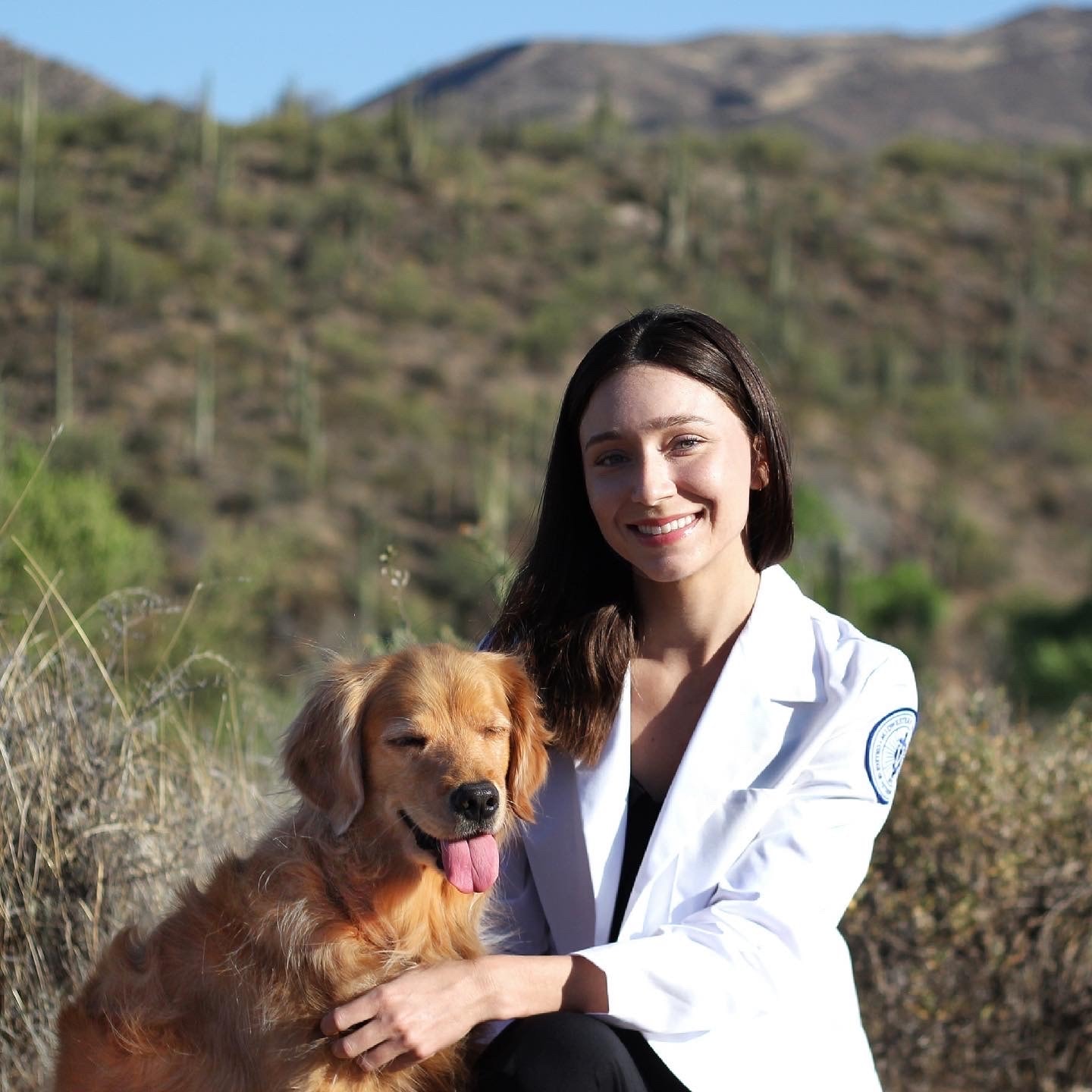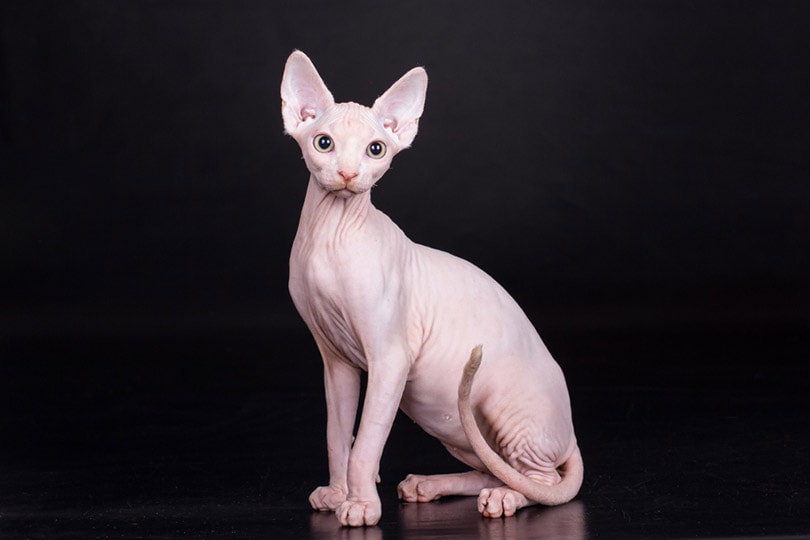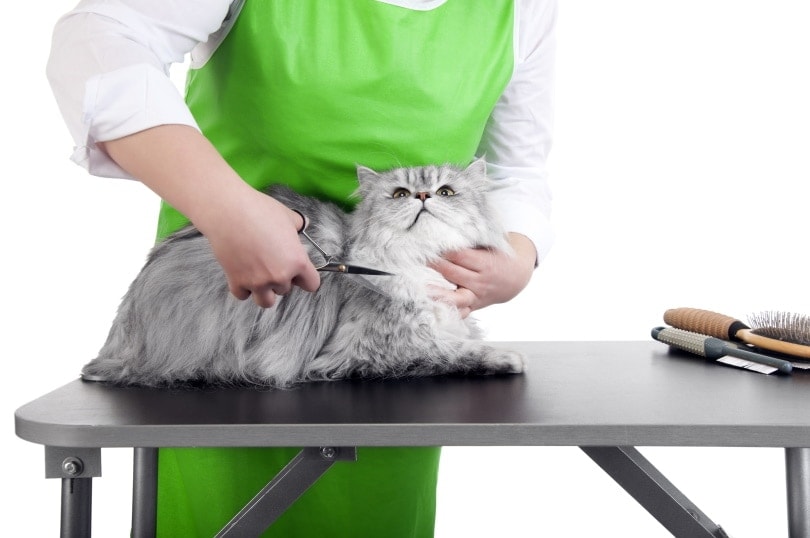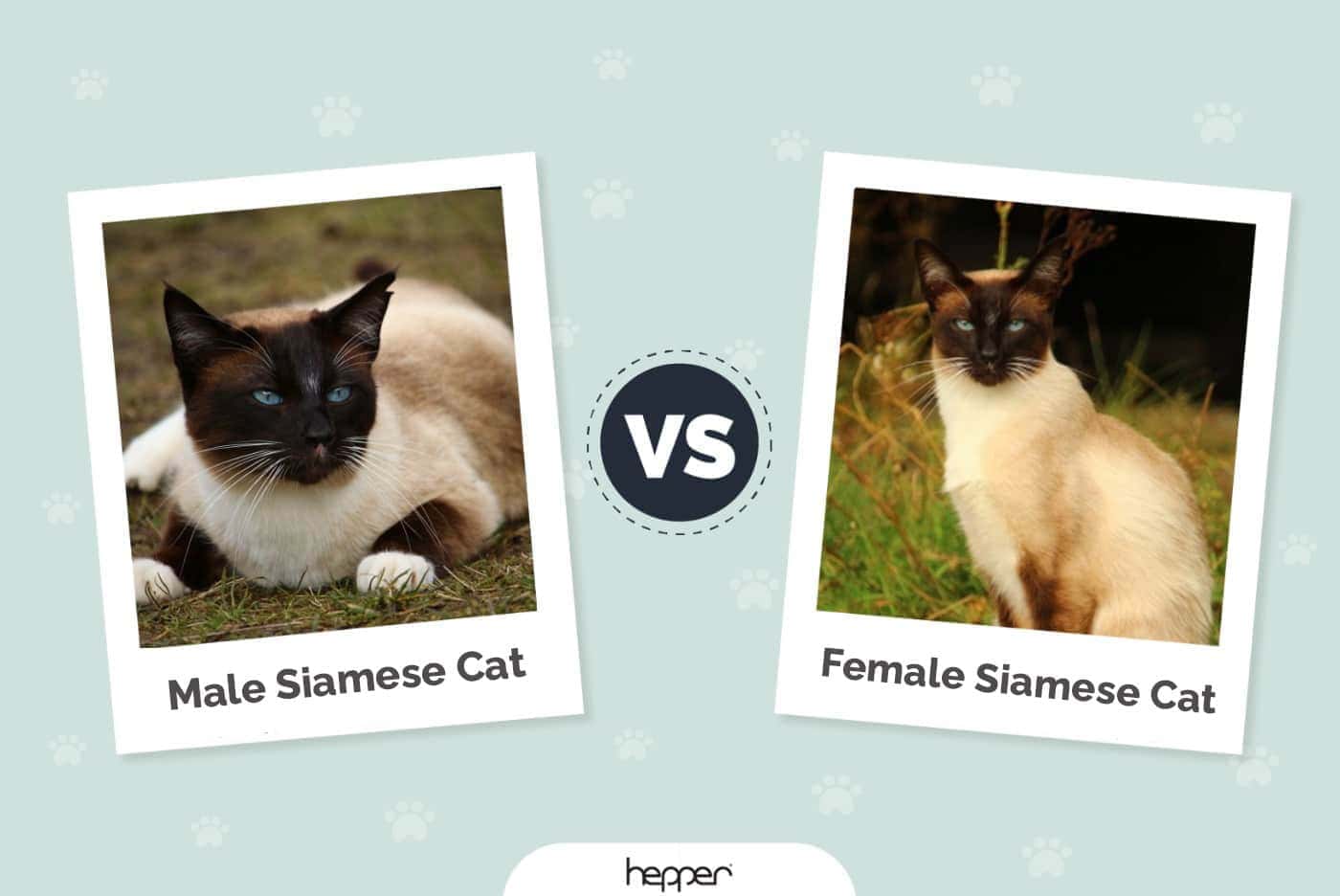Can Cats Eat Dill? Vet-Reviewed Nutritional Facts & Safety Guide
Updated on
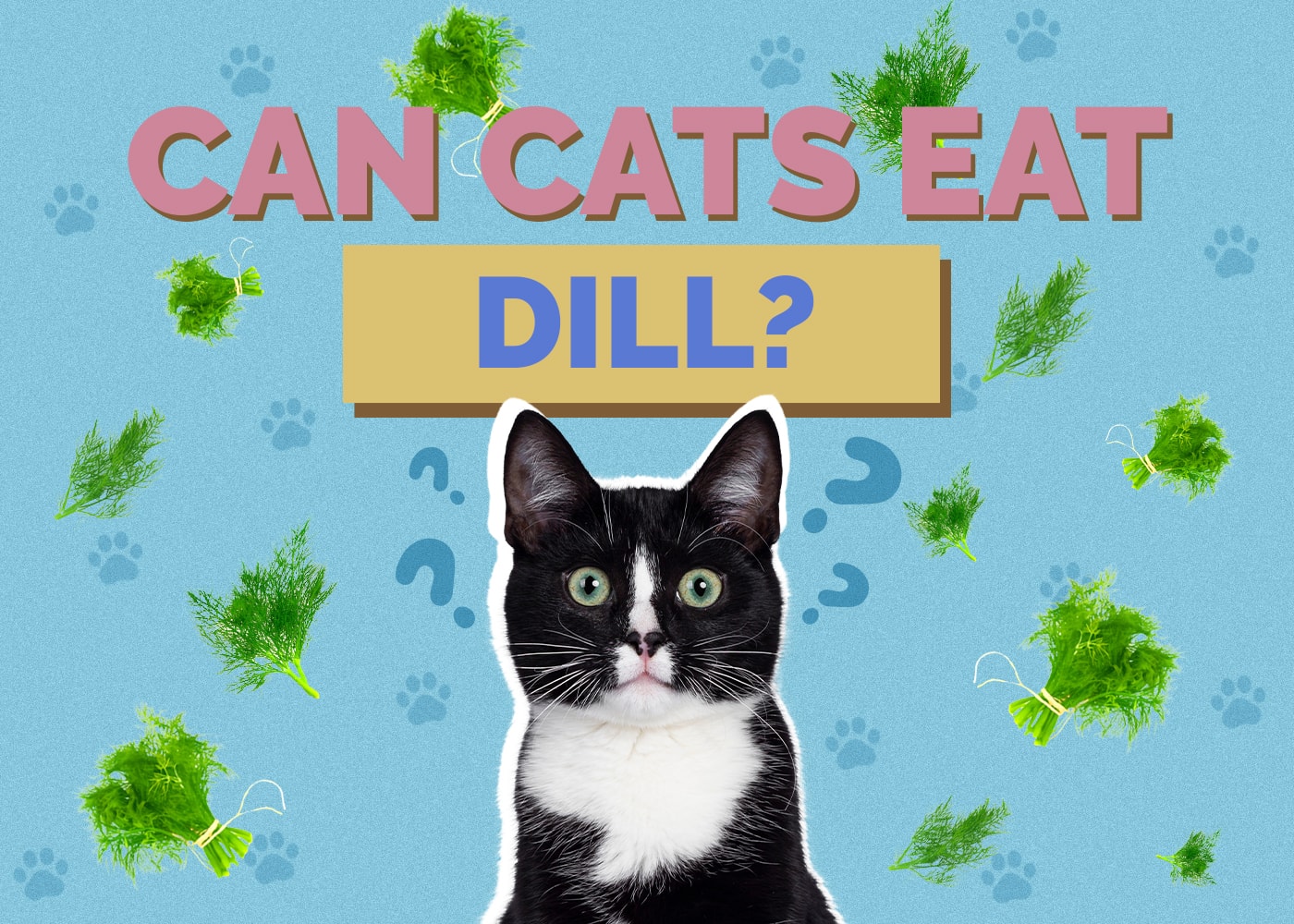
The smell of certain foods is one reason why cats are attracted to trying new things. This is especially the case with herbs, as the plants themselves often have unique smells. In fact, that’s precisely why humans love using them so much for cooking. Cats love them too, especially since a lot of herbs look very similar to grass.
One herb in particular that your cat may be attracted to is dill. This may lead you to wonder if your cat can eat it, and if doing so will cause any problems. The good news is that eating dill shouldn’t cause any harm to your cat, however, that doesn’t mean that you should feed it to them regularly. Continue reading for everything you need to know about your cat eating dill.
Do Cats Like Dill?
Surprisingly, a lot of cats do like to eat dill. Maybe it’s the smell of dill that attracts your cat, similar to the way that catnip does, or maybe it’s just the fact that it looks similar to grass, which many cats love to nibble on.
Although it’s not really clear why cats like to eat dill, it can work similarly to grass in that it can help to relieve indigestion in your feline and may contain nutrients that your cat could be missing from his regular diet.
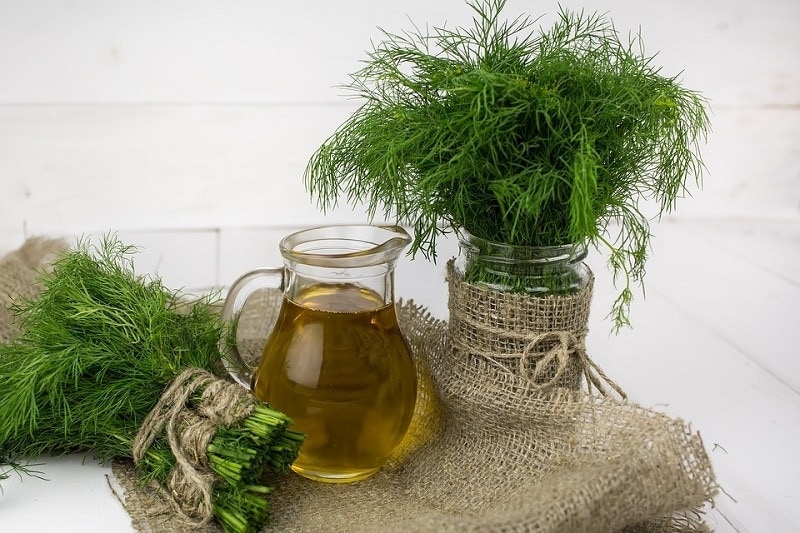
Is It Okay for Cats to Eat Dill?
According to the ASPCA, dill is non-toxic to cats. This is a good thing because it means your cat can eat as much dill as he wants, right? Well not exactly. Even though dill is safe for cats to eat, it doesn’t contain all of the essential nutrients that your cat needs to survive, so he shouldn’t eat it in abundance or even every day.
Cats are obligate carnivores, which means that 70% or more of their diet should come from meat or food that contains primarily meat, such as complete and balanced cat food. Being an obligate carnivore means that cats rely on the nutrients found in meat to survive. These nutrients are mostly proteins, but also include minerals such as iron and zinc and vitamins such as B12.
Cats need these nutrients in order to keep their muscles lean and functioning properly. Without a diet that consists mostly of meat, a cat won’t survive. With that being said, a cat that eats dill every once in a while will be just fine as long as he is still eating regular cat food.
But, since dill doesn’t contain the essential nutrients your cat needs, it’s not good or beneficial for their health to eat it every day. That basically just means that no matter how much your cat loves dill, it shouldn’t be a regular part of their diet.
Does Dill Contain Any Nutrients That Are Good for Cats?
Even though dill doesn’t contain any of the essential nutrients that your cat needs to survive, it doesn’t mean that dill isn’t nutritious for your cat. Dill contains plenty of nutrients, however, these nutrients serve more as a supplement to your cat’s diet rather than being an essential part of it.
Two of the most abundant nutrients found in dill are vitamins A and C. The benefits of vitamin A include support for a healthy immune system as well as keeping your cat’s vision in good shape, which any cat owner knows is important.
But dill is even higher in vitamin C than it is in vitamin A. Vitamin C is even more crucial for a healthy immune system, but it also helps support healthy bones as well as a healthy metabolism. Vitamin C is also an antioxidant that can help prevent damage to cells.
Another nutrient that dill packs in spades is manganese. Manganese is a mineral that supports healthy brain function in addition to a healthy nervous system and metabolism. Other minerals that dill contains are calcium, potassium, and zinc.
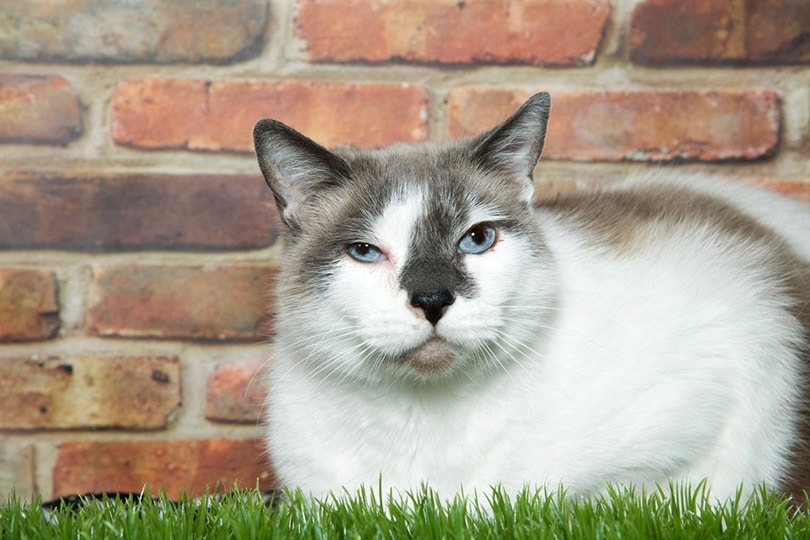
Why Is Eating Too Much Dill Bad for Your Cat?
It may appear at first glance as though dill is actually very good for cats considering how many nutrients it contains, but remember that these nutrients aren’t the most important for your feline. Most of these nutrients are found in your cat’s normal food in small amounts anyway considering that a lot of dry cat food contains fruit and vegetable ingredients as well.
Even though vitamins are good for your health in normal amounts, consuming too many vitamins and minerals can actually cause negative health effects. For example, too much vitamin C can cause an upset stomach. Even though it won’t kill your cat, eating too much dill could cause them to not be as healthy as they should be considering that regular cat food contains similar supplemental nutrients.
What Other Herbs Are Safe for Cats?
In addition to dill, there are other herbs that are safe for cats to eat as well. That still doesn’t mean that they should eat them regularly, but we’re telling you this in case you have an herb garden (either indoors or outdoors) that your cat likes to nibble on occasionally.
- Calendula
- Catnip
- Dandelion root
- Echinacea
- Valerian
- Witch hazel
Remember that even though these herbs are safe for cats, they still shouldn’t eat them too often or in large quantities. It just means that if you see your cat taking a nibble of one of them occasionally, you don’t have anything to worry about as far as your cat getting sick.
Now that you know what you can safely feed your cat, it’s just as important to find a bowl that supports their health and well-being. With whisker-friendly bowls and a wide tray to catch any spills, our Hepper NomNom Cat Bowl is our favorite option.
Final Thoughts
Dill isn’t bad or toxic for cats and it’s okay for your cat to eat some occasionally. However, avoid letting your cat eat too much dill or eat it too often, as it doesn’t contain nutrients that are essential for his or her diet. There are other herbs that are safe for your cat as well, but there are also some that aren’t. If you’re ever unsure, it’s a good idea to do exactly what you’re doing, which is read up on it first, before you allow your cat to continue eating something that may be toxic or unsafe.
See also:
Featured Image Credit: webentwicklerin, Pixabay
